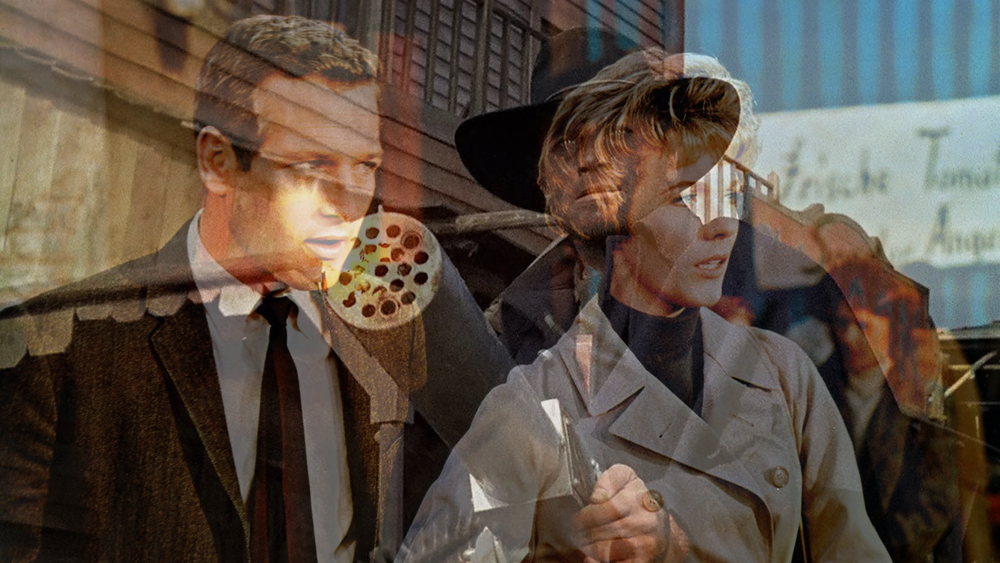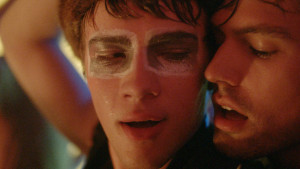
One thing that is true about all tournaments is that invariably, as time goes on the the field gets smaller, narratives start to emerge. This happens frequently in sports: bitter rivalries, long-due title shots, Cinderella runs. This past February saw sentient loaf of white bread Peyton Manning get the ultimate heel victory by stamping out young, popular babyface upstart Cam Newton and winning Super Bowl 50 in what was essentially his retirement match. Even our own humble 1989 Tournament of Films had a semi-wrestling storyline going into the finals: we had a blockbusting American cultural juggernaut and the highest-grossing film of the year squaring off against a nightmarish black-and-white cyberpunk cult joint from Japan made for likely no more than five figures. Anything comparative then becomes a study in contrasts, parallels, and intersections. This is where this particular matchup in the 1966 Tournament of Films brings us, and it’s not entirely unlike the Manning/Newton example above. This pairing, more than anything, is a battle between an old hand and a young turk.
The old hand, in this instance, is legendary director Alfred Hitchcock. To talk about Hitchcock is to ultimately talk about cinema itself, its obsessions and particularites, its methods and mechanics. 1966 wasn’t just the year that Torn Curtain was released; it was also the year that François Truffaut’s collection of interviews with the great man, aptly titled Hitchcock/Truffaut in its English iteration, was published. When those interviews were conducted in the early 60s, Hitchcock was in his post-prime–that is if we consider his prime to be between 1940 and 1954, when he directed 18 films, at least ten of which are canon-worthy. His post-prime, which took up the next decade, includes one of the all-time greatest directorial runs of in the history of cinema, which depending on who you asked, either ended with The Birds in 1963 or with Marnie in 1964. But regardless of its semi-polarizing place in the Hitch filmography, Marnie does mark a shift: it feels like the first Hitchcock to engage with the nascent cinematic modernism of Europe by way of his polished, almost old-hat Hollywood genre chops (I’d like to point out that the gold standard of this particular mode of filmmaking is John Boorman’s Point Blank). This marriage of sensibilities is often interesting, especially given Hitchcock’s formal precision and rigor, but is ultimately hamstrung in execution, by fate and by design.
Torn Curtain stars Paul Newman as an American physicist who fakes a defection to East Germany to gain insight into the secrets of Communist Europe’s advances in rocket science. His assistant/fiancée, played by Julie Andrews, is initially none the wiser, but ultimately becomes a part of the operation. In between, the two meet and are chased by a litany of perfectly-cast Eastern European character actors, including a show-stopping Wolfgang Kieling, playing a leather-clad, gum-snapping goon. In true spy film fashion, there are thrilling set pieces and dastardly double-crosses and underground networks of subversives all present to help our heroes along. What does the film no favours is the apparent lack of commitment from the leads. It’s no secret that Newman and Andrews were not Hitchcock’s preferred leads. Newman in particular seems ill-suited to the rigid emotional structures of a Hitchcock film, resulting is the least Paul Newman-esque Paul Newman performance I have ever seen. And this isn’t even a Sean Connery-in-Marnie situation where an actor’s metatext threatens to overshadow the text; this is Newman operating in a mode he’s ill-equipped to perform in. It’d be like casting Don Knotts in Hamlet. The same goes for Andrews: she feels particularly wasted in a role that requires little else from her than to seem vulnerable and confused. It’s as if the film wants to engage with contemporary cinema, but only to a certain extent, and only on its own terms. This does lead to the film centrepiece, a protracted murder sequence that is shocking in its bluntness, especially during the James Bond era, and especially for a Hitchcock film.
Django, however, was the contemporary cinema, shocking, brutal, and ebullient. It was co-written and directed by Sergio Corbucci, the dirt-caked nihilist negative to Sergio Leone’s grandiose positive. The 60s were the dawn of golden age of European exploitation films, spaghetti westerns included. It was the age of quick-and-dirty; so prolific was Corbucci at this early point in his career that he would direct ten films in between 1965 and 1969, including a whopping three in 1966 alone, two of which made it into this very tournament. Django, the higher-seeded of the two, is more or less an adaptation of Akira Kurosawa’s Yojimbo: after the Civil War, a drifter in a Union uniform (Franco Nero, excellent) happens upon a border town that has been torn asunder by two warring factions, a group of Mexican revolutionaries and some KKK-affiliated ex-Confederate soldiers who could charitably be called sore losers. How cartoonishly evil are these ex-Confederates? Right at the jump, they want to crucify a prostitute and set the cross alight. Everything in the movie is grey or murky, from the ghost town to the saloon to each and every character’s moral compass. There’s no clever-clever outwitting here, it’s simply a matter of who can shoot the fastest and punch the hardest. And like most revenge movies, it’s a film about moral rot and oppressive power structures, albeit one with the slimmest of silver linings. In a way, Django exists as a delivery devices for genre clichés morphed into a series of indelible images. José Bodalo doesn’t just kill a Confederate spy, he cuts off his ear and forces him to eat it before shooting him in the back (it’s exactly as unpleasant and gross as it sounds). Bodalo also doesn’t just get a soldier to crush Nero’s hands late in the film, he gets every available horse to walk over his hands in what can only be described as a sadistic merry-go-round. But most trenchant of all, is the film’s core lasting image, neatly summing up this particular strain of spaghetti western: a man dragging a coffin through the mud, and inside the coffin is a machine gun.
Though Torn Curtain doesn’t have the strong sense of imagery that Django does, it does have a few set pieces of its own. In addition to the brutal offing referenced above, there is a chalkboard duel between Newman and Ludwig Donath that’s surprisingly gripping for a scene where two dudes scribble formulae in near-silence. There’s also a nifty, effective nail-biter involving a clandestine bus line. But despite this, Torn Curtain could have used a little more ruthlessness in the editing room: what passed for tension-builders or plot-thickeners then merely register as excess now (see: the entire sequence with Lila Kedrova’s Polish aristocrat). By contrast, the particular sphere of genre filmmaking that Django inhabits, brevity is an asset (small bit of editorializing here: most movies are about half an hour too long; directors, don’t be afraid to carve your movie like a god damn Christmas goose). Despite the abundance of long dollies, weird zooms, and pregnant pauses included, Django wastes precious little time connecting the dots. It’s arguable that Torn Curtain, by its very nature as a spy film, would be knottier and more strung out, but it ends up playing like the filmic equivalent of a fucked-up game of cat’s cradle. But when all of the plusses and minuses of these two films get synthesized in my mind’s eye via the complex intellectual alchemy known as art criticism, this becomes a choice between an okay Alfred Hitchcock movie and, with the possible exception of The Great Silence, the defining Sergio Corbucci transmission. This was never Torn Curtain’s fight to win.
The winner: Django
—
Both films are available for purchase or rent on home video. No streaming option here, folks.
Django; directed by Sergio Corbucci; written by Bruno Corbucci and Sergio Corbucci; starring Franco Nero, Loredana Nusciak, José Badalo, Angel Alvarez, and Eduardo Fajardo, 90 minutes.
Torn Curtain; directed by Alfred Hitchcock; written by Willis Hall and Keith Waterhouse; starring Paul Newman, Julie Andrews, Günther Strack, Ludwig Donath, and Wolfgang Kieling; 128 minutes.



 Derek
Derek
 Isabelle
Isabelle